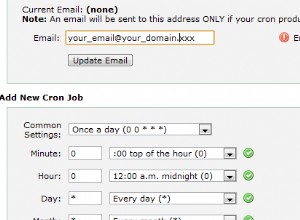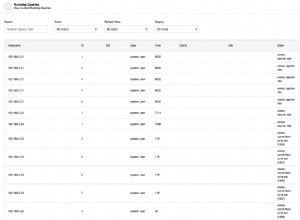Quando você tenta gerar erros via
SIGNAL você precisa especificar o SQLSTATE qual é o código de erro e para os códigos de erro genéricos definidos pelo usuário é 45000 junto com o texto da mensagem MESSAGE_TEXT Assim, o gatilho torna-se como
delimiter //
create trigger lock_x_id before update on games
for each row
begin
if old.xid is not null then
signal SQLSTATE VALUE '45000' SET MESSAGE_TEXT = 'Your custom error message';
end if;
end;//
delimiter ;
Caso de teste
mysql> select * from games;
+----+------+------+
| id | xid | val |
+----+------+------+
| 1 | NULL | 1 |
| 2 | NULL | 2 |
| 3 | NULL | 3 |
| 4 | 1 | 4 |
| 5 | 2 | 5 |
+----+------+------+
Vamos criar o gatilho agora
mysql> delimiter //
mysql> create trigger lock_x_id before update on games
-> for each row
-> begin
-> if old.xid is not null then
-> signal SQLSTATE VALUE '45000' SET MESSAGE_TEXT = 'Your custom error message';
-> end if;
-> end;//
Query OK, 0 rows affected (0.05 sec)
mysql> update games set xid = 4 where id = 1;
Query OK, 1 row affected (0.06 sec)
Rows matched: 1 Changed: 1 Warnings: 0
mysql> update games set xid = 5 where id=5;
ERROR 1644 (45000): Your custom error message
E depois de executar os 2 comandos de atualização acima, veja como a tabela se parece
mysql> select * from games;
+----+------+------+
| id | xid | val |
+----+------+------+
| 1 | 4 | 1 |
| 2 | NULL | 2 |
| 3 | NULL | 3 |
| 4 | 1 | 4 |
| 5 | 2 | 5 |
+----+------+------+
Observe que a segunda atualização falhou e a linha não foi alterada.
Leia mais sobre isso https://dev.mysql.com/doc /refman/5.5/en/signal.html




